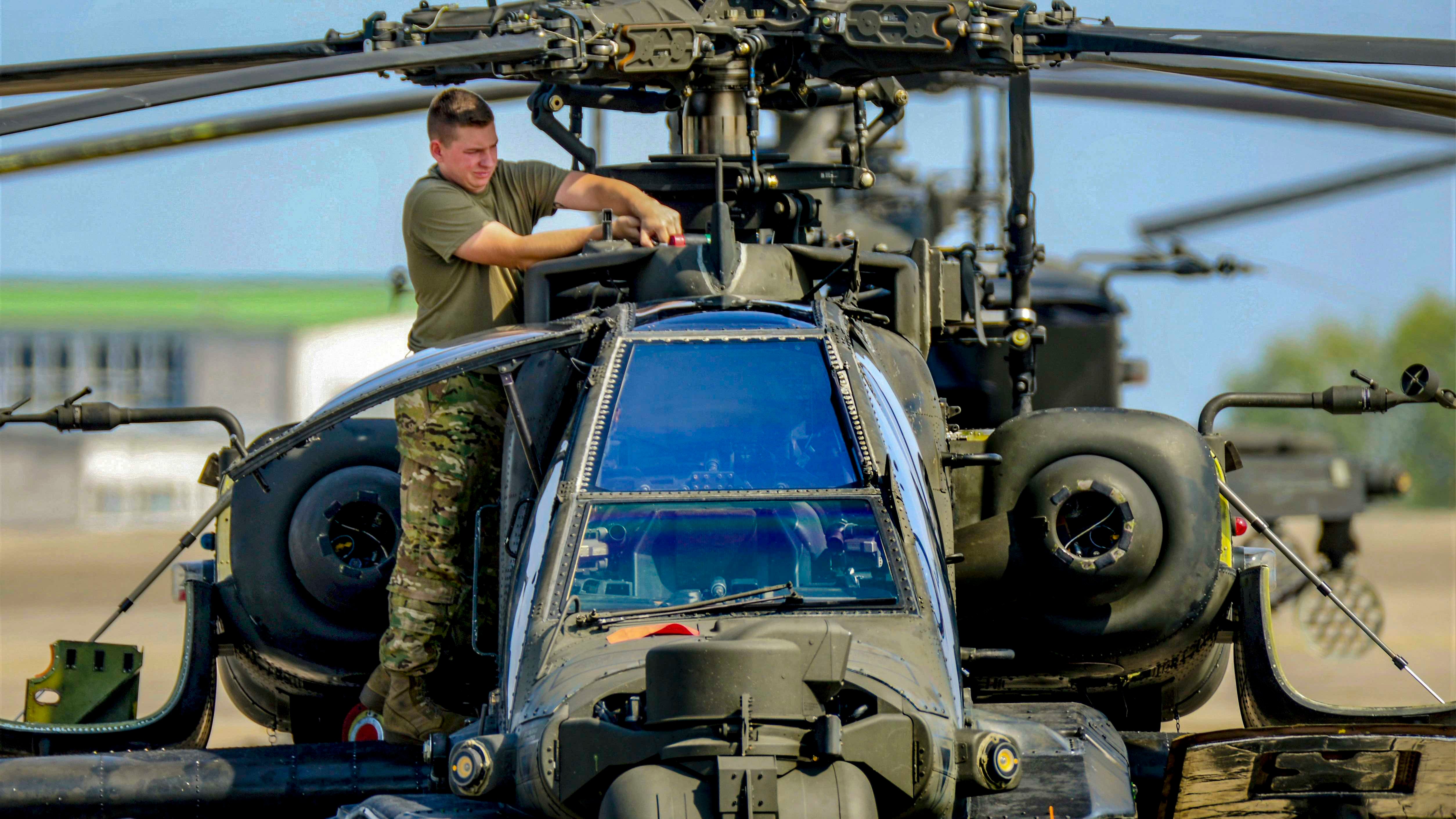Soldiers Deserve 'Best Equipment’ to Fight and Win
Soldiers Deserve 'Best Equipment’ to Fight and Win

As the Army undergoes its biggest transformation in decades and prepares for large-scale combat operations against near-peer adversaries, soldiers must always “have the best equipment to fight and win our nation’s wars,” a senior Army leader said.
Maj. Gen. Thomas O’Connor, commander of the Army Aviation and Missile Command, stressed the importance of honoring the past while transitioning to the future. “Those that have come before us—the impact they’ve had, the conditions they set, their innovative and creative ways to solve problems—we use that as a starting point,” he said.
As an example, O’Connor pointed to Joseph Cribbins, a pioneer of Army aviation logistics and namesake of AUSA’s national award for Army civilians. “Even before aviation was a branch [of the Army], Cribbins was having a tremendous impact on the sustainment community. He set the conditions by moving mountains of parts all over the Pacific theater” during World War II and the Korean War, O’Connor said.
Just as Cribbins did then, Army logistics leaders must “set the conditions today to ensure that we are not limiting the capabilities of our force,” O’Connor said.
Speaking earlier this year during an Association of the U.S. Army Hot Topic forum on Army aviation, O’Connor said some challenges include supply chains, quality of parts, customs and operational requirements. Even in an uncontested environment, the Army has trouble maintaining readiness across a widely dispersed area, he said, “and some soldier in the future is counting on us to think about these problems and set the conditions [to enable them].”
One key component is the Army’s organic industrial base, which is “a strategic enabler, insurance policy and part of the strategic readiness that our nation has to react, to be agile, to scale rapidly and to support our warfighters,” O’Connor said. He noted that Corpus Christi Army Depot in Texas is one of the Army’s critical locations to ensure that the future organic industrial base has the capacity and capability to sustain future weapons systems. He added that the depot saved the Army more than $115 million last year solely on engine and transmission repairs and replacements.
O’Connor also thanked AUSA for hosting professional development forums “that enable collaborative opportunities for us to discuss, to understand where the Army is and where it’s going.”

